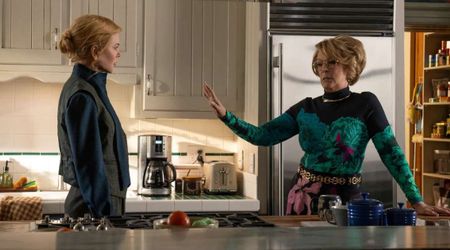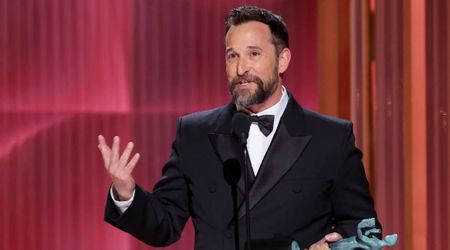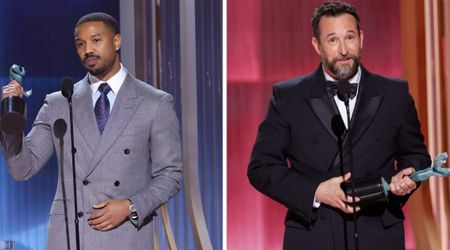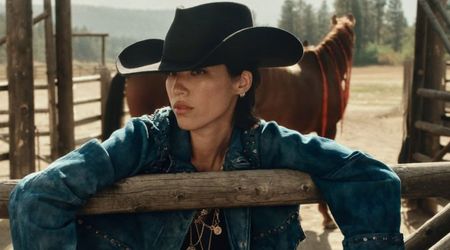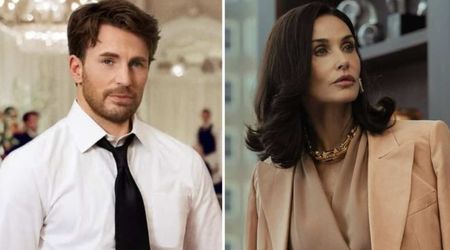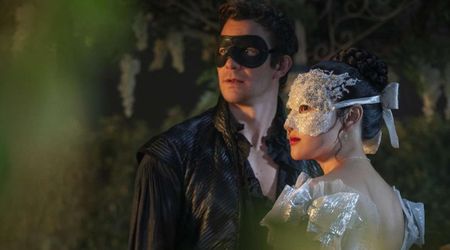High ratings of 'Roseanne' and 'Modern Family' is exactly the reality check we needed to understand the country's divide

When it was announced that 'Roseanne' was returning to our TV screens, a lot of us had reservations about how the dated show would appeal to the new generation of viewers. Turns out, we did not have to worry about the fate or ratings of the show, which, in fact, has been raking in record viewership.
The reboot of the sitcom that originally ran between 1988 and 1997 shows Roseanne – almost predictably – as one of the white working-class voters who voted for Trump in the 2016 elections. And no matter how many times the cast members try to convince us that the show is about more than just politics, the country as a whole is going to politicize it.
The fact that the titular Roseanne is portrayed by vocal Trump supporter Roseanne Barr does not help matters. The show has become more about how great US President Donald Trump is, and how Roseanne is his biggest and most famous supporter – on and off the show – and less about class struggles and feminism, which is what the show was about in the first place.
In fact, one of the biggest criticisms against 'Roseanne' is one that was raised by Roxane Gay in her New York Times post. "Where once she was edgy and provocative, she is now absurd and offensive. Her views are muddled and incoherent. She is more invested in banal and shallow provocation than engaging with sociopolitical issues in a thoughtful manner. No amount of mental gymnastics can make what Roseanne Barr has said and done in recent years palatable."
This Roseanne 2.0, nonetheless, seems to have grabbed the attention of many and while many of us come to terms with the fact that a pro-Trump primetime show has so many fans, it is important to remember that disregarding the ABC show as a series for self-delusional Trump supporters would be a grave mistake. If the success of 'Roseanne' reinstates anything it is that there is a whole group of people who agree with everything you are against.
In fact, one of the few other shows to enjoy a similar level of success is ABC's own long-running 'Modern Family,' which is currently airing its ninth season. With a total of 22 Emmy wins and a salary or $100,000 per episode for each of the child actors, 'Modern Family' is the definition of success.
The odd truth, however, is that both shows are representatives of two ends of the political spectrum. As the name suggests, 'Modern Family' narrates the story of a family that does not conform to the patriarchal, heteronormative stereotypes.
The extended family of ABC show has a gay couple, a patriarch who is married to a much younger, Columbian second wife and a third couple who is a long-term, happy marriage despite the wife taking on the alpha role in the relationship. In fact, it is considered the first successful, widespread network sitcom to include a gay couple as main characters.
It is everything that 'Roseanne's is not and stands for everything that the current government seems to be against – except, may bwfor the much younger second wife past.
However, 'Modern Family' is among one of the most popular shows on TV right now, and even got the rare opportunity to decide when and how it wants to end. The show will air its tenth and final season next TV season and as showrunner Steve Letivan puts it, "If we can leave with most of our audience wanting more, I think that’s the right way to do it.”
So, what does the simultaneous success of 'Modern Family' and 'Roseanne' tell us? Mostly, that the divide in the country is very real and no half is willing to listen to the other side. While 'Modern Family' gets criticized by conservatives for trying to make non-conventional family dynamics the new norm, democrats are furious that Roseanne is a Trump apologist, who refuses to see the POTUS as a xenophobe, because of which she herself comes across as a small-minded, transphobic racist.
Moreover, it is important to remember that Roseanne is not just about the titular character's opinions and viewpoints. Roseanne is opposed at various points by her more liberal and Hillary Clinton-supporting sister Jackie Harris, and her daughter Darlene, who is probably the only member of the family who has been places.
As Sara Gilbert, one of the executive producers and actor who brings Darlene to life, says, “I think this is a time, as we all know, where our country is very divided. And we did have a wonderful opportunity to talk about this in the context of a family, and I think part of what’s going on is that people feel like they can’t disagree and still love each other or still talk to each other.”
Even Emma Kenney, who plays Harris Conner-Healy, Darlene's daughter on the show, said, “The show is all about a family and family differences and how they bond together at the end of the day and end up having a nice family meal. And maybe it’s not so nice, maybe they’re screaming at each other, but it’s all in normal family fun."
A larger scale of that can be seen in the juxtaposition of 'Modern Family' and 'Roseanne' where the loyalties of the American people are tested. Half the population voted for Trump, and half didn’t. It is just a fact.
Within the realms of 'Roseanne,' it is evident that the choices she made with regards to the president were driven by her belief that Trump would bring more jobs to the country. As she explains to Jackie, it is more or less the desire to see more jobs that led Roseanne Conner to be his supporter despite not agreeing with all of his policies.
In fact, most of Trump supporters – white working-class folks – voted the way they did because of the very same reason. In fact, 'Roseanne' showcases the perfect template for an American blue-collar family on TV and as long as we refuse to accept that the needs of these citizens are far from our own, we will be unable to understand and experience the appeal of 'Roseanne.'
Similarly, the working-class Americans looking to work hard and earn a living, are unable to relate to Mitch and Cam's crisis at a dinner party or Claire's attempts at being a magician for her magic-loving husband or Mani's despair at giving a lackluster acting performance at his fancy-a** college.
To top that off, there is the unflattering depiction of the Mid-West and the South within 'Modern Family'. One of the central characters, Cam, is said to have grown up in Missouri, and true to the stereotype, most of his anecdotes center on the livestock he refers to as his brothers and sisters, tornadoes and life in the farm.
These worlds do not coincide, and unfortunately, so long as they refuse to listen to the other side and understand the other side of the coin, half the country will forever remain blind and dead to the other half – all the while complaining about how selfish and inconsiderate or alternatively how snowflakey and socialist the other side is.

